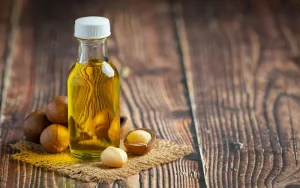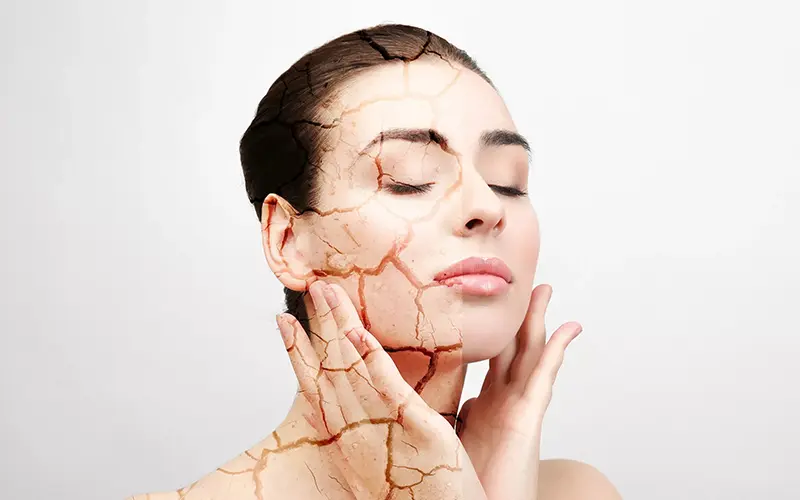Understanding the difference between dry vs. dehydrated skin is essential for proper skincare. Although these terms are often used interchangeably, they describe two distinct skin conditions that require different treatments. Knowing the difference can help you choose the right products and avoid further skin problems.
What Is Dry Skin?
Dry skin is a skin type characterized by a lack of natural oils or sebum. People with dry skin usually experience rough texture, flakiness, and sometimes itching. This condition is often genetic but can be worsened by environmental factors such as cold weather, low humidity, or harsh soaps. Dry skin tends to feel tight and uncomfortable, especially after washing.
What Is Dehydrated Skin?
Dehydrated skin, on the other hand, refers to a lack of water in the skin rather than oils. This condition can affect all skin types—dry, oily, or combination. When skin is dehydrated, it looks dull and may show fine lines or feel tight. Unlike dry skin, which is a type, dehydration is temporary and often caused by external factors such as weather changes, excessive caffeine, or lack of water intake.
Recommended Products: Medusa Cleaners
Key Differences Between Dry vs. Dehydrated Skin
The main difference in the dry vs. dehydrated skin debate is that dry skin lacks oil, while dehydrated skin lacks water. This distinction is crucial for treatment: dry skin needs nourishing, oil-based moisturizers to restore the skin barrier, whereas dehydrated skin requires water-based hydrators to replenish moisture.
How to Tell If You Have Dry or Dehydrated Skin?
To differentiate between dry vs. dehydrated skin, pay attention to your skin’s behavior. If your skin feels dry consistently, flakes, and is rough to the touch, it’s likely dry skin. However, if your skin feels tight only occasionally and looks dull or tired, it may be dehydrated. A simple test is to gently pinch your skin; if the skin snaps back quickly, it’s likely dry but well-hydrated; if it returns slowly, your skin may be dehydrated.
Common Causes of Dry vs. Dehydrated Skin
Understanding the root causes of dry vs. dehydrated skin helps in preventing these conditions. Dry skin is often caused by genetics, aging, cold weather, and harsh skincare products that strip away natural oils. Dehydrated skin, however, is usually triggered by lifestyle factors such as inadequate water intake, excessive caffeine or alcohol consumption, and environmental aggressors like pollution or sun exposure. Both types can be worsened by over-cleansing or using products that disrupt the skin barrier.
Recommended Products: Medusa Tonics
Best Skincare Ingredients for Dry vs. Dehydrated Skin
Choosing the right ingredients is key when addressing dry vs. dehydrated skin. For dry skin, look for nourishing ingredients like ceramides, shea butter, and natural oils that restore the lipid barrier. In contrast, dehydrated skin benefits from humectants such as hyaluronic acid, glycerin, and aloe vera, which attract and lock in moisture. Avoiding harsh alcohols and fragrances is important for both conditions to prevent irritation.
Tips to Prevent Dry and Dehydrated Skin
Preventing dry vs. dehydrated skin involves adopting a consistent skincare routine and healthy habits. Use gentle cleansers, avoid long hot showers, and apply moisturizers immediately after washing to lock in moisture. Drinking plenty of water, using a humidifier in dry environments, and protecting skin from UV damage with sunscreen are also effective strategies. Regular exfoliation can help remove dead skin cells but should be done cautiously to avoid further dryness or dehydration.
Recommended Article:
Conclusion
Recognizing the difference between dry vs. dehydrated skin is the first step toward effective skincare. Both conditions require different approaches, and using the wrong products can worsen the problem. By understanding these differences, you can customize your skincare routine to keep your skin healthy, hydrated, and glowing.
FAQs
1. How do I know if my skin is dry or dehydrated?
Dry skin feels rough and flaky. Dehydrated skin feels tight and looks dull.
2. Can oily skin be dehydrated?
Yes. Any skin type, including oily, can lack water and become dehydrated.
3. Can skin be both dry and dehydrated?
Yes. Your skin can lack both oil (dry) and water (dehydrated) at the same time.







